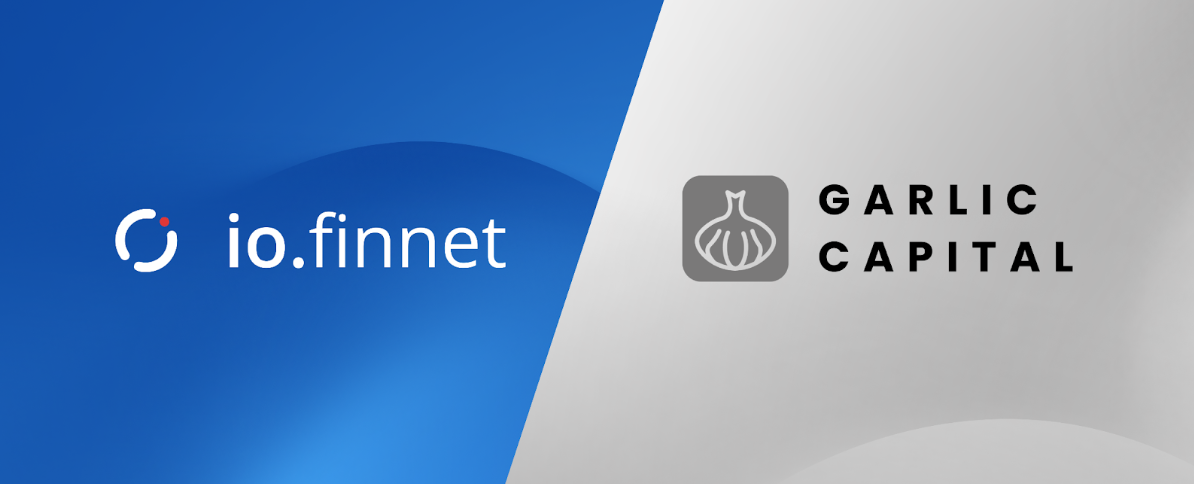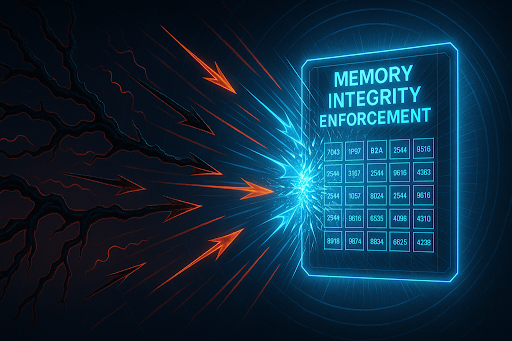LEARN
Top 6 Enterprise Crypto Wallets in 2025 (Features + Prices)
If your organization manages crypto at scale, then using a standard wallet simply won’t cut it. You need a reliable and secure enterprise crypto wallet.
Here’s why:
Enterprise crypto wallets are designed specifically for organizations that manage digital assets across teams. They offer features like multi-user access, transaction approvals, compliance integration, scalable security, and much more.
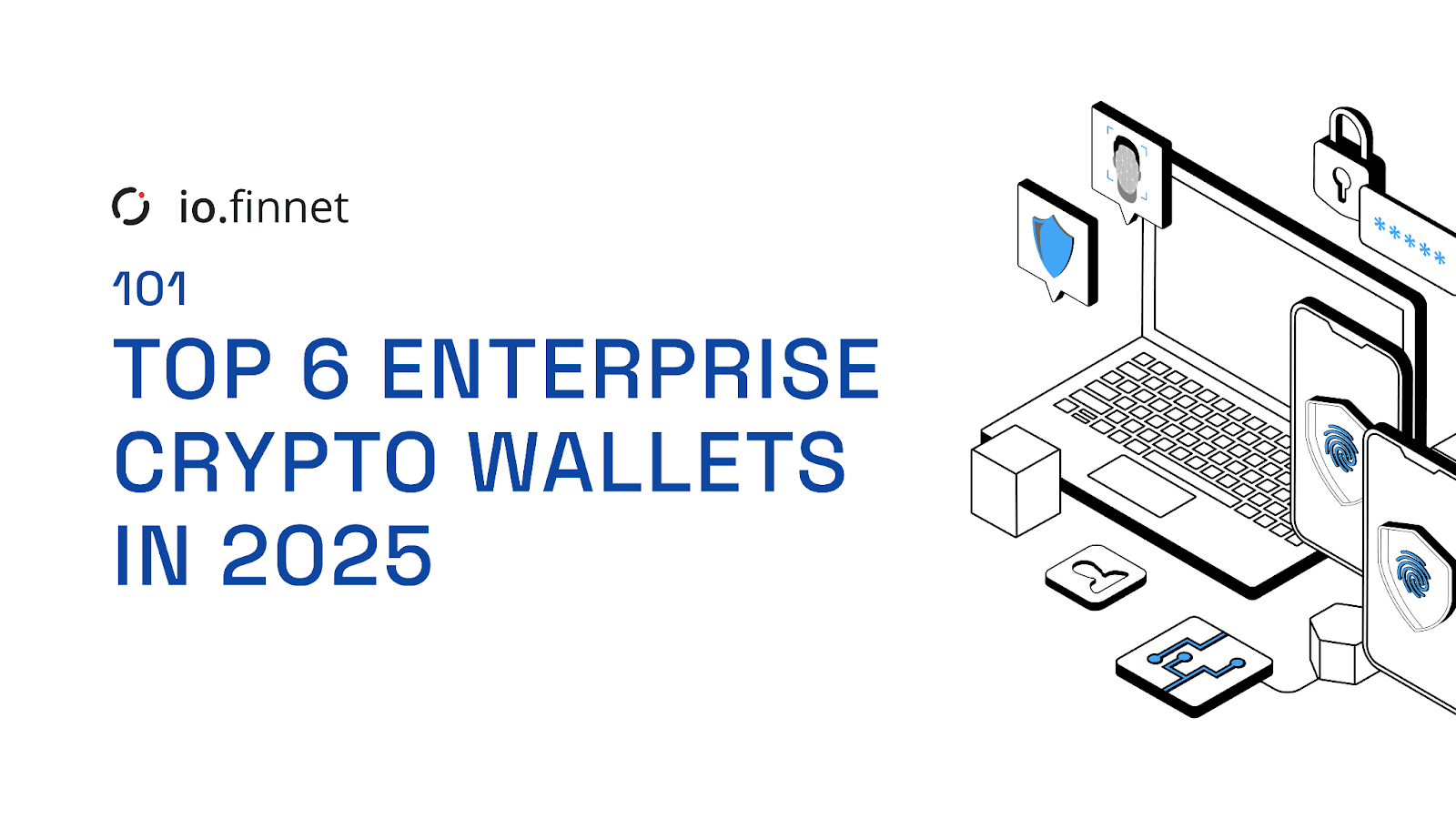
In this guide, we’ll walk you through the top reasons to use an enterprise crypto wallet and highlight the best wallets to consider.
This Article Contains
- What Is an Enterprise Crypto Wallet?
- 8 Critical Reasons to Use a Crypto Wallet for Your Enterprise Business
- Top 6 Enterprise Crypto Wallets That Offer Robust Security in 2025
- 4 FAQs About Enterprise Crypto Wallets
An enterprise crypto wallet is a secure digital wallet built for businesses to manage, store, and transact with multiple cryptocurrencies and digital assets at scale. Unlike personal wallets, it offers advanced features like multi-user access, role-based permissions, and transaction approval workflows.
This wallet is essential for companies handling crypto as part of their treasury, operations, or services.
Most enterprise crypto wallets, like the one offered by io.finnet, support integrations with compliance tools (such as KYC/AML systems) and internal systems. This makes them ideal for securely managing digital assets in a business environment.
But those are just a few of the many benefits of using enterprise crypto wallets. Let’s dive deeper:
Here’s what sets enterprise crypto wallets apart, and why your business needs one:
- Enhanced Security for Your Digital Assets: Enterprise wallets offer advanced protection through multi-signature or Multi-Party Computation (MPC) technology, reducing the risk of theft, loss, or unauthorized access. Tools like io.finnet take things a step further by protecting your assets with the advanced tMPC-based technology.
- Operational Control and Oversight: Enterprise crypto wallets usually provide role-based access, approval workflows, and full transaction visibility to ensure internal control and accountability.
- Regulatory Compliance Support: Many wallets include built-in tools for audit trails, KYC/AML compliance, and regulatory reporting, helping enterprises meet legal obligations.
- Streamlined Crypto Transactions: Enterprise wallets enable fast, secure, and accurate crypto payments, transfers, and settlements across teams or business units.
- Multi-Asset and Multi-Chain Support: These wallets typically support multiple cryptocurrencies and blockchain networks, allowing for flexible and future-proof operations.
- Integration With Existing Systems: Enterprise crypto wallets often come with APIs and third-party integration capabilities, making it easier to connect with accounting platforms, custodians, and internal tools.
- Scalable Infrastructure: Unlike personal wallets, most enterprise wallets can handle increased transaction volume and complexity without compromising on performance or security.
- Real-Time Monitoring and Analytics: Reliable cryptocurrency wallet solutions come with user-friendly dashboards and alert systems that allow businesses to track balances, monitor crypto transactions, and identify potential risks in real time.
So, what are some of the best wallet options you should consider?
If you're looking for a secure, scalable way to manage digital assets across your organization, you need to check out these enterprise crypto wallets:

io.finnet offers a secure, self-custody wallet built specifically for enterprises. It’s a powerful solution that empowers businesses to manage digital assets directly without relying on third-party digital asset custodians.
The platform has quickly become a preferred choice for prominent entities and institutions in the digital asset space. It serves a diverse client base, including OTCs, cryptocurrency exchanges, market makers, and funds.
Here are some of the key features and benefits of io.finnet:
- Scalable Trustless Multi-Party Computation (tMPC): io.finnet’s enterprise wallet is highly scalable and can be customized to fit any organization's needs. This allows for the creation of unlimited vaults, signers, thresholds, and approver hierarchies to meet specific security requirements.
- Developer Integration and Automation Capabilities: Offers comprehensive APIs and SDKs that enable full automation of end-to-end business processes and integration with DeFi platforms, providing a robust environment for tech-savvy users and developers.
- Customizable Transaction Costs and Speeds: Offers a customizable gas fee feature that allows users to adjust transaction fees based on their needs, optimizing for cost or speed.
- Compliance and Policy Enforcement: Enables enforcement of internal policies for transfer instructions and validation, ensuring that no single employee can control all funds, thereby enhancing security.
- Regulatory Compliance: Designed to comply with essential regulatory requirements like KYC and AML, adding an extra layer of security and trust for users.
- Web3 Access: Provides a unified interface to manage all your DeFi apps seamlessly, supporting both EVM and non-EVM chains through WalletConnect integration.
- Comprehensive Asset Support: Supports a wide range of digital assets, including Bitcoin, Ethereum, and various tokens, ensuring versatility for diverse portfolio management. Check out our full asset support list.
- Advanced Disaster Recovery: Provides options for trustless disaster recovery, allowing for immediate funds recovery without third-party interaction, using existing signers to issue a "reshare" to replace lost or compromised devices.
Risk screening/Transaction Simulation: This feature proactively screens for malicious activity during transaction orchestration, adding an extra layer of security to your operations. Powered by Blockaid.
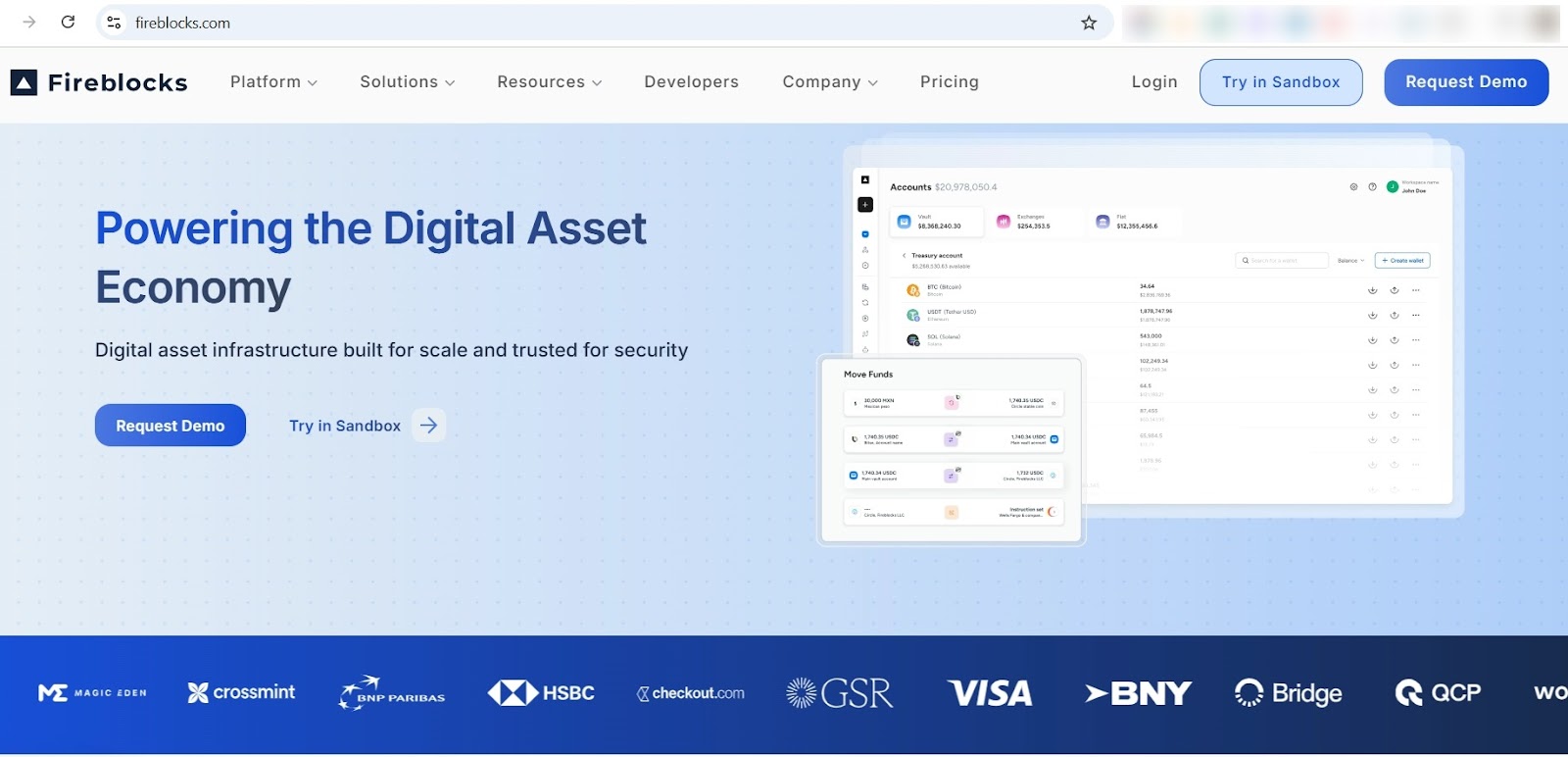
Fireblocks is an enterprise-grade digital asset platform known for its secure MPC wallet infrastructure, automated transaction workflows, and multi-user policy controls. It enables businesses to securely move, store, and issue digital assets across multiple networks.
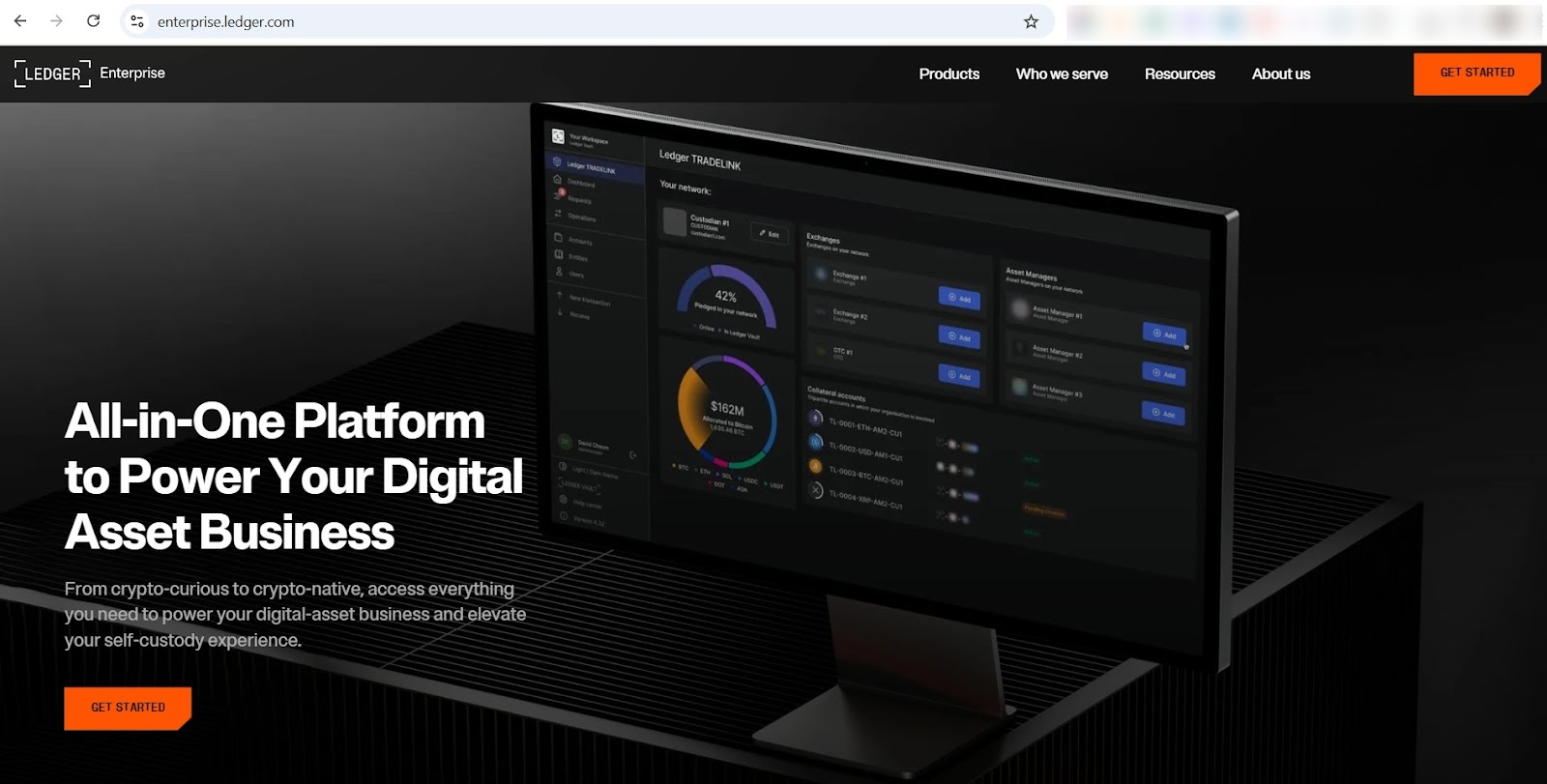
Ledger Enterprise builds on the security foundation of Ledger hardware devices but adds robust governance features for institutions. It offers a hardware-secured wallet infrastructure with customizable policies and secure key management.
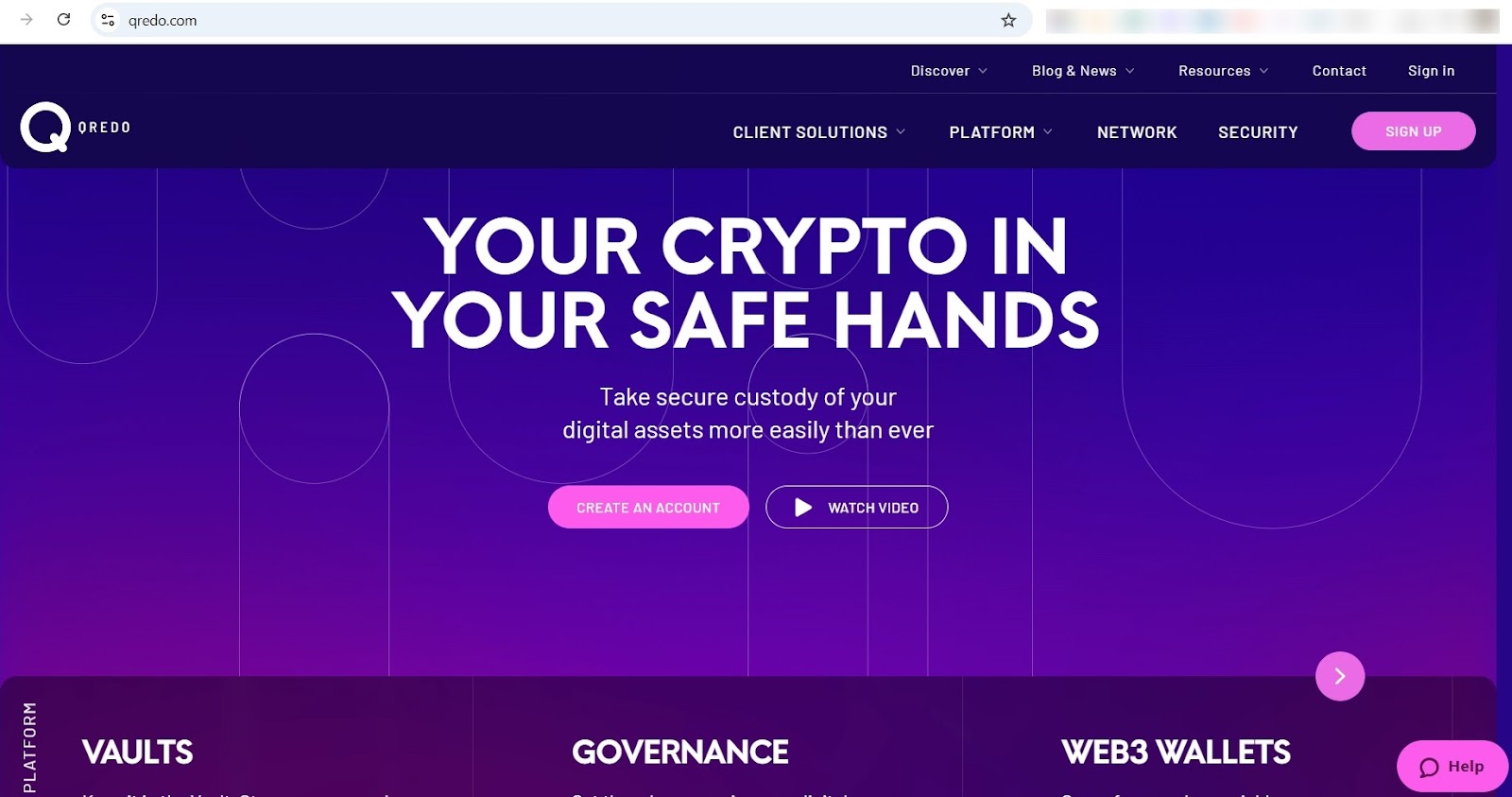
Qredo offers decentralized custody using distributed MPC (dMPC), allowing enterprises to manage digital assets without relying on centralized private keys. It includes features like programmable governance, instant cross-chain settlement, and on-chain audit trails.
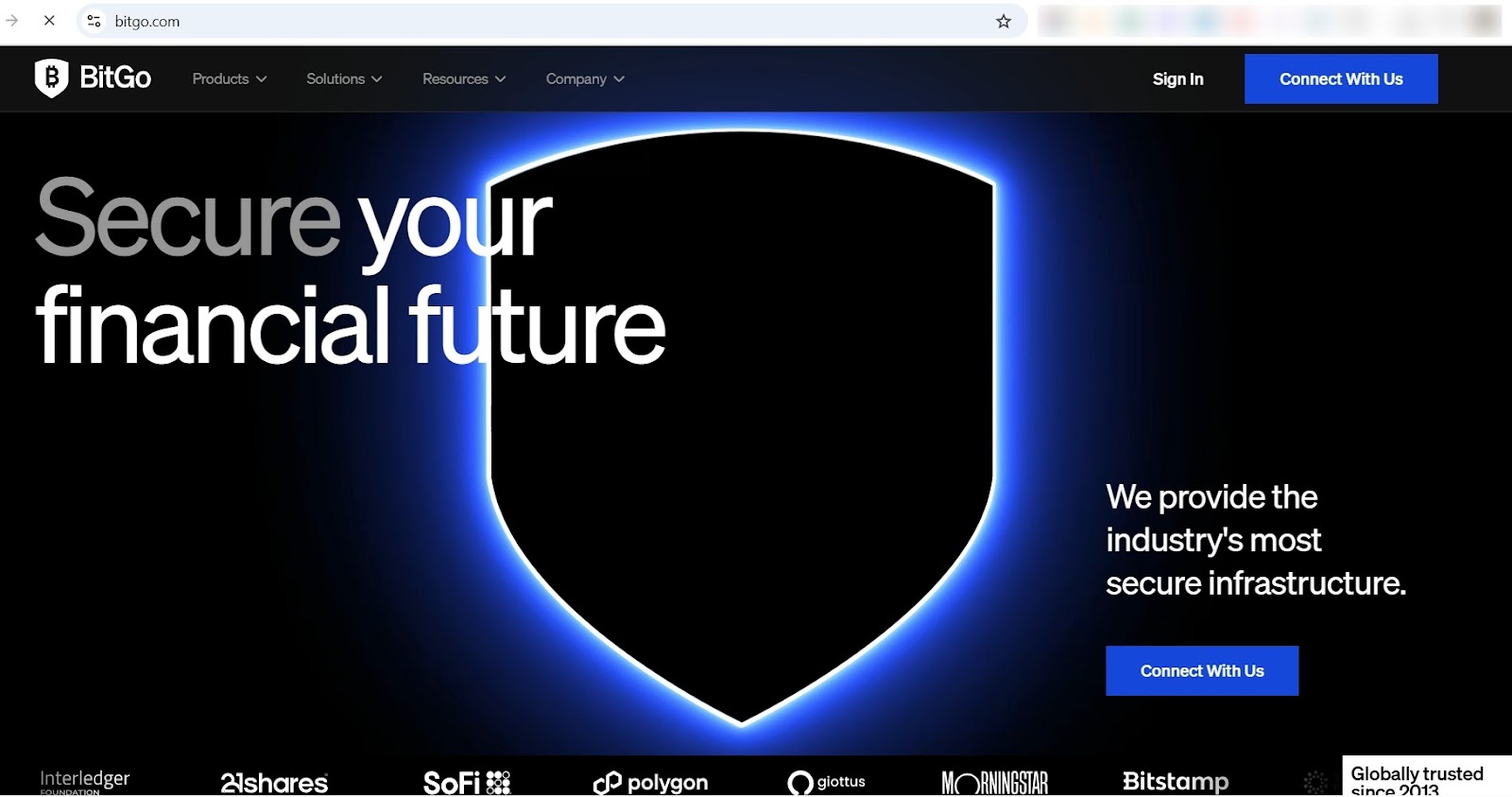
BitGo offers hot and cold wallet solutions and supports multisig and MPC setups, robust access controls, and policy management tools for institutional clients. It’s also SOC 2 Type 2 certified and offers regulated custody services.
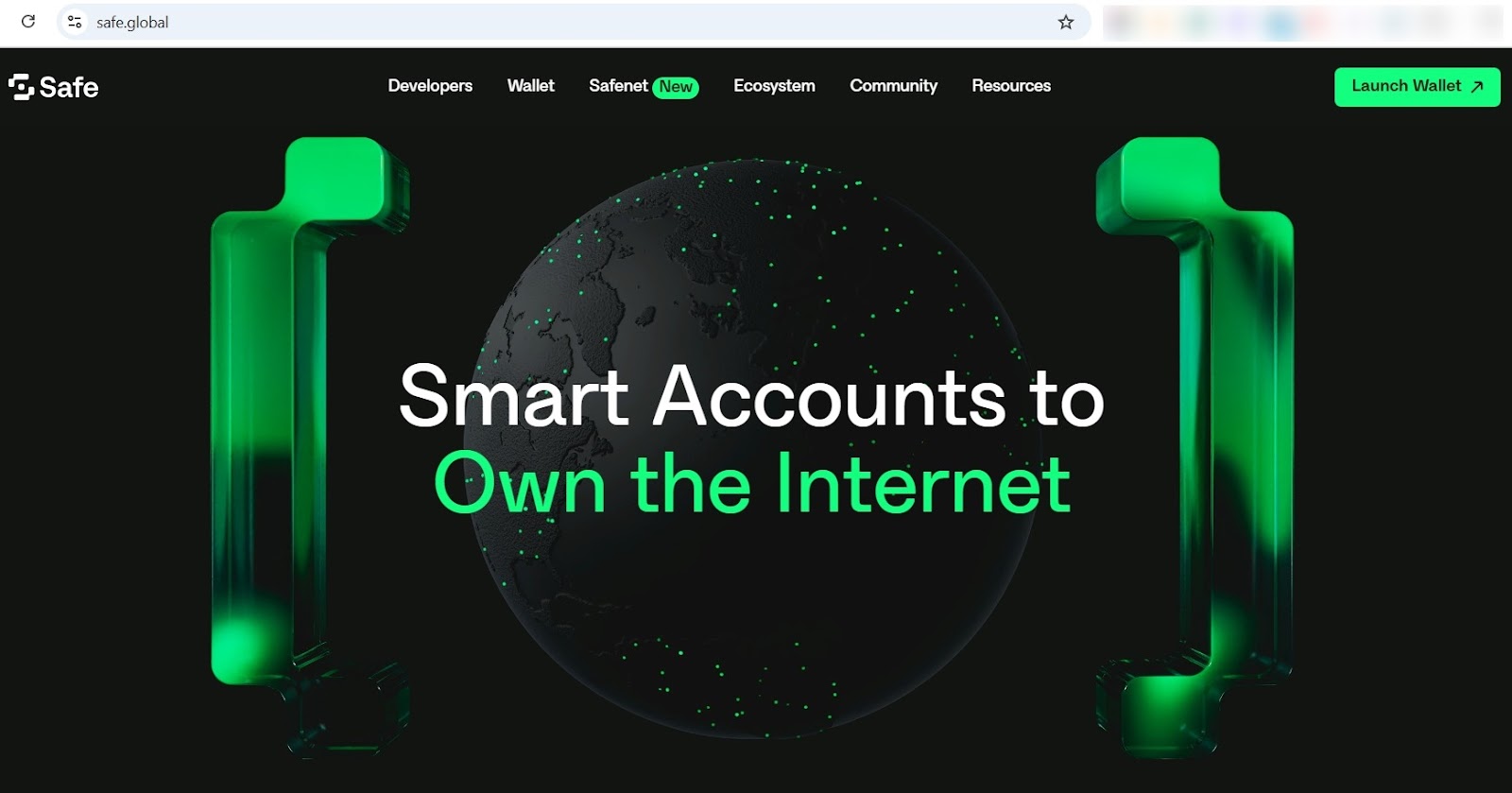
Safe is a smart contract-based wallet designed for secure multi-signature asset management on Ethereum and EVM-compatible chains. It allows multiple signers to approve transactions, making it ideal for DAOs and enterprises that need collaborative treasury control.
Keen to learn more about how enterprise crypto wallets work? These FAQs cover everything you need to know:
1. What Are the Different Types of Enterprise Crypto Wallets to Consider?
Below are the various cryptocurrency wallet types to pick from:
- Custodial Wallets: A third-party provider manages your private keys and handles all cryptocurrency transactions on your behalf. While this setup simplifies operations, it doesn’t give you direct control over your assets. This means if the provider is compromised or experiences downtime, your access to funds could be delayed or lost entirely.
- Non Custodial Wallet: A non custodial wallet gives enterprises full control over their private keys and signing processes. Different types of non-custodial wallets include:
- Multi-Signature Wallets (Multisig Wallets): These wallets require multiple parties to sign each transaction. Offers strong internal controls but can be limited across some blockchains.
- Multi-Party Computation Wallets (MPC Wallets): MPC wallets use cryptographic techniques to split signing responsibilities across multiple devices or users. The private key is never fully reconstructed, which enhances security and flexibility. Some advanced implementations, like io.finnet’s trustless MPC (tMPC), go further by removing reliance on centralized backends. In a tMPC setup, signers hold their shares locally, perform signing without a central server, and maintain full recovery capability — delivering true decentralization, privacy, and resilience.
2. What Are Hot and Cold Wallets, and Which Option Is Best for Your Enterprise?
A hot wallet is connected to the internet, and this makes it ideal for sending and receiving crypto quickly. Although it’s commonly used for operational needs, a hot wallet is exposed to online threats like hacking or phishing.
A cold wallet stores private keys offline (on hardware devices or paper wallets), and this keeps it isolated from online risks. While it offers stronger protection, a cold wallet is less convenient for real-time access and daily use.
For many enterprises, using both can strike the right balance (i.e., using hot wallets for frequent cryptocurrency transactions and cold wallets for secure long-term storage).
Meanwhile, io.finnet’s tMPC-based wallet offers a modern solution that goes beyond the traditional hot/cold setup.
How?
With io.finnet, signers retain control of their key shares locally, and signing occurs through encrypted communication between devices (without involving any central server).
This gives your enterprise the speed of a hot wallet and the security of cold storage in one powerful solution.
3. What Is Enterprise Blockchain, and How Does It Relate to Enterprise Crypto Wallets?
Enterprise blockchain refers to a private or permissioned blockchain network designed for business use. Unlike a public blockchain solution (like Bitcoin or Ethereum), enterprise blockchain technology is usually optimized for privacy, scalability, and controlled access. This makes it suitable for supply chain management, finance, identity verification, and more.
So, how does it relate to enterprise crypto wallets?
Enterprise crypto wallets come into play by securely managing the digital assets, tokens, or credentials used on an enterprise blockchain network. Whether your business is issuing tokens, automating smart contract interactions, or handling on-chain crypto payments, an enterprise wallet ensures that all transactions are signed, stored, and tracked securely.
However, it’s worth noting that enterprise crypto wallets are also designed to secure assets on public blockchains.
4. Do Enterprise Crypto Wallets Support Multiple Blockchain Protocols?
Yes, many enterprise crypto wallets are designed to support multiple blockchain protocols. This means you can manage crypto assets across different networks (such as Ethereum, Bitcoin, Solana, and more) from a single interface.
For instance, io.finnet supports a broad range of digital assets, including Bitcoin, Ethereum, and various tokens. This makes it a practical choice for businesses that operate across multiple chains or manage a diverse set of crypto holdings.
Power Your Business With a Smarter Enterprise Crypto Wallet
Enterprise crypto wallets aren’t one-size-fits-all, and choosing the right one can make a major difference in how securely and efficiently your team operates.
While there are several solid options on the market, only a few offer the combination of flexibility, decentralization, and control that today’s businesses truly need.
io.finnet delivers on all fronts.
With its trustless MPC (tMPC) foundation, io.finnet removes centralized dependencies and gives enterprises complete control over their crypto assets. It’s secure, scalable, and built to support the complexity of real-world business operations — without compromise.
Keen to see it in action?
Try io.finnet for free today and explore next-gen digital asset security.

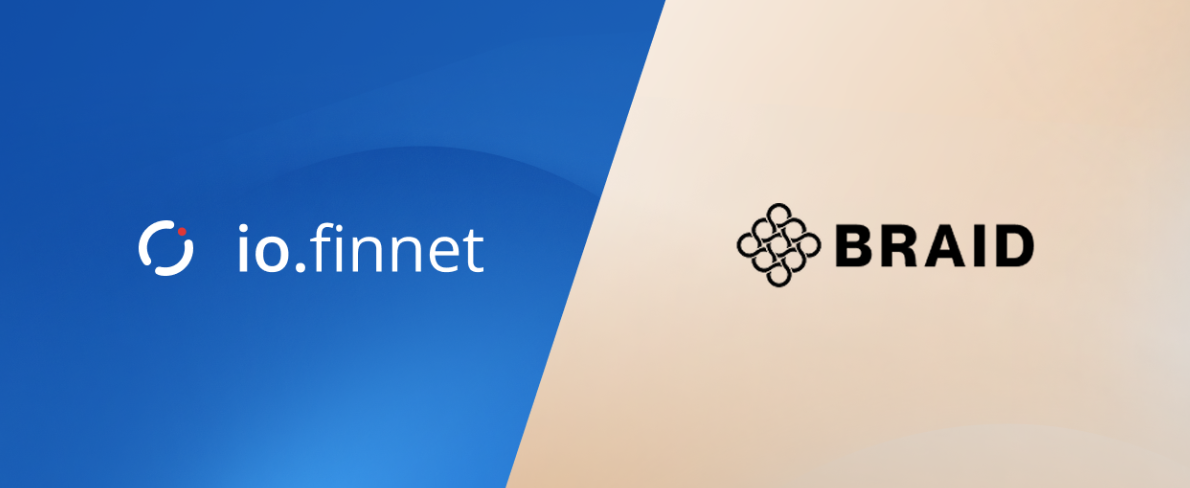
.svg)
